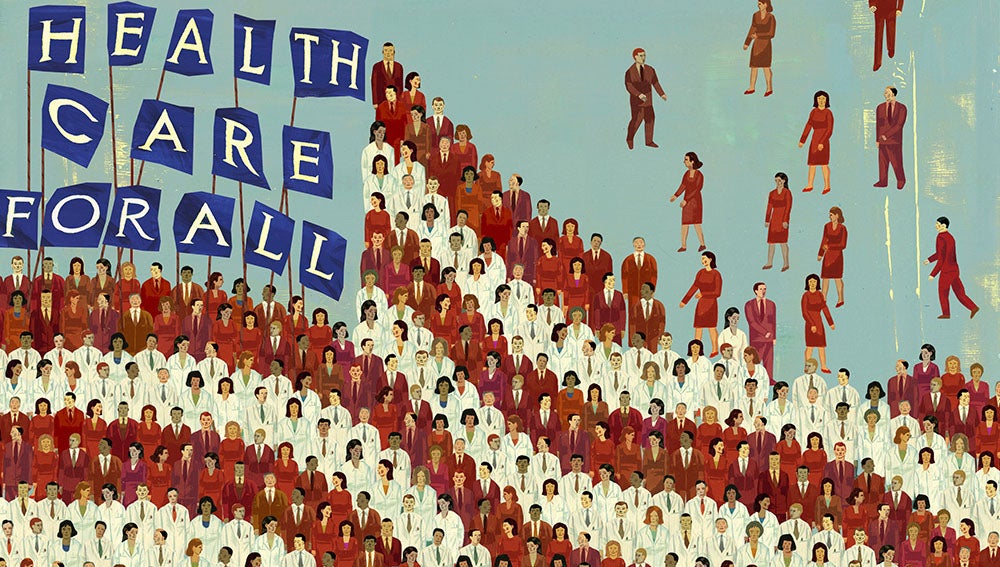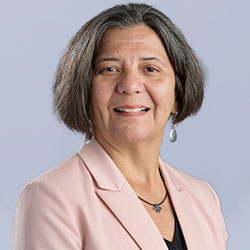
In 2019, Governor Gavin Newsom and the Legislature created the Healthy California for All Commission with 13 voting members — eight gubernatorial appointees, four legislative appointees, and Secretary of California Health and Human Services Agency Mark Ghaly. The commission was tasked with developing a plan to enable California’s health care delivery system to expand coverage and access through a unified funding structure that includes but is not limited to single-payer financing. The commission released its final report in June 2022. Each commission member was invited to submit a comment letter to be included in the report. Here is the comment made by California Health Care Foundation president and CEO Sandra R. Hernández, MD, who was appointed to the panel by Governor Newsom:
This important report is not only the product of this commission, it was made possible by decades of efforts in California to expand, improve, and realign our health care system to work better for all Californians. We members of this commission stand on the shoulders of many health policy visionaries who came before us. I am honored to have been appointed by Governor Gavin Newsom to participate in this process and to work alongside such a distinguished and committed group of health care and community leaders. I am grateful for the opportunity to learn with them about what it would take to make our health care system sustainable, accountable, and equitable.
Over my career, I have had the opportunity to assemble many commissions to contribute to public policy. I understand from those experiences the immense analytic and process challenges that go into an effort like this one. I applaud Secretary Mark Ghaly and his capable team of staff and consultants for doing an exemplary job facilitating our work, bringing us valuable information, and integrating our feedback so effectively.
Secretary Ghaly said that a unified system of health care financing is necessary, but not sufficient, to ensure that we have a delivery system that treats all Californians with dignity, and I couldn’t agree more. Unified financing is critical. We should pursue it vigorously. But it is not an end unto itself.
This report is clear about the many other steps necessary for ensuring that our health care system meets the fundamental needs of all Californians. We should pursue these with equal vigor.
Universal coverage. Unified financing makes sense only if everyone is covered. Thanks to the leadership of the governor and the legislature, California is closer than ever to universal coverage. Now is the time to finish the job and also to ensure seamless enrollment of all eligible Californians.
Workforce. The COVID-19 pandemic underscored how much our shared health depends on having the right types of health care workers in the right places. It also revealed that California is struggling with a shortage of health professionals who can speak the languages and understand the cultures of a highly diverse population. In 2019, the California Future Health Workforce Commission laid out a road map for solving our most pressing shortages of health care workers. Since then, the governor and the legislature have significantly increased funding to train a new generation of health workers. That investment will need to be sustained if we hope to meet the health needs of more than 39 million Californians.
Transforming Medi-Cal. The single biggest opportunity to improve the health care experiences and outcomes of the most vulnerable Californians comes from within the Medi-Cal program. Right now, the California Department of Health Care Services has two unprecedented and potentially game-changing initiatives to enhance the experiences of many millions of Californians enrolled in the program. One is an effort to use the reprocurement process for managed care plans as a powerful lever to drive improvement around quality of care and health equity. The other is CalAIM, which would bring a sorely needed whole-person approach to Medi-Cal and give managed care plans both the incentives and flexibility to address the social needs, such as housing and food, of our most vulnerable Californians.
Office of Health Care Affordability. Californians pay too much for health care and generally do not get their money’s worth. Unified financing can’t change that unless there are mechanisms to track what we all spend on health care and to ensure that prices are reasonable. The proposed California Office of Health Care Affordability seeks to do both, building on what other states have already done.
Data exchange. The fragmented nature of California’s health data systems is a major barrier to controlling health care costs and improving outcomes, particularly for people with complex health and social needs. Beginning in 2024, providers, plans, and hospitals will be required to participate in a new statewide data sharing agreement, also informed by what has worked in other states. The California Health and Human Services Agency, with help from a stakeholder advisory committee, is finalizing a framework for how this data exchange would be governed, implemented, and kept secure. Unless we align the incompatible health data systems that cripple our ability to make care more effective and affordable, it will be nearly impossible to realize the benefits of unified financing.
Put Californians at the Center of Decisions
This final report underscores how bad our current system is at taking care of Californians with the greatest health needs. Unfortunately, there are many powerful forces in the state whose default position is to protect the status quo. The status quo cannot continue. The only chance we have of ensuring that our health care system functions as more than the sum of its parts is if we keep the people of California at the center of our decisionmaking.
I am pleased that the California Health Care Foundation (CHCF) partnered with The California Endowment and the California Community Foundation to help bring community perspectives into the work of this commission. It remains imperative for key stakeholders who are shaping future reforms to have a consistent way of incorporating input and feedback from everyday Californians, especially those who now face the greatest barriers to care. A few years ago, CHCF conducted focus groups among Californians with low incomes to better understand their health care experiences. Most of what we heard could be summed up in the words of one interviewee from Modesto who said, “Treat me as a person.”
The people of California deserve respect and dignity when they seek medical care. As this commission made clear, they deserve the same when it comes to rewriting the rules of the health care system they rely on.
Authors & Contributors




